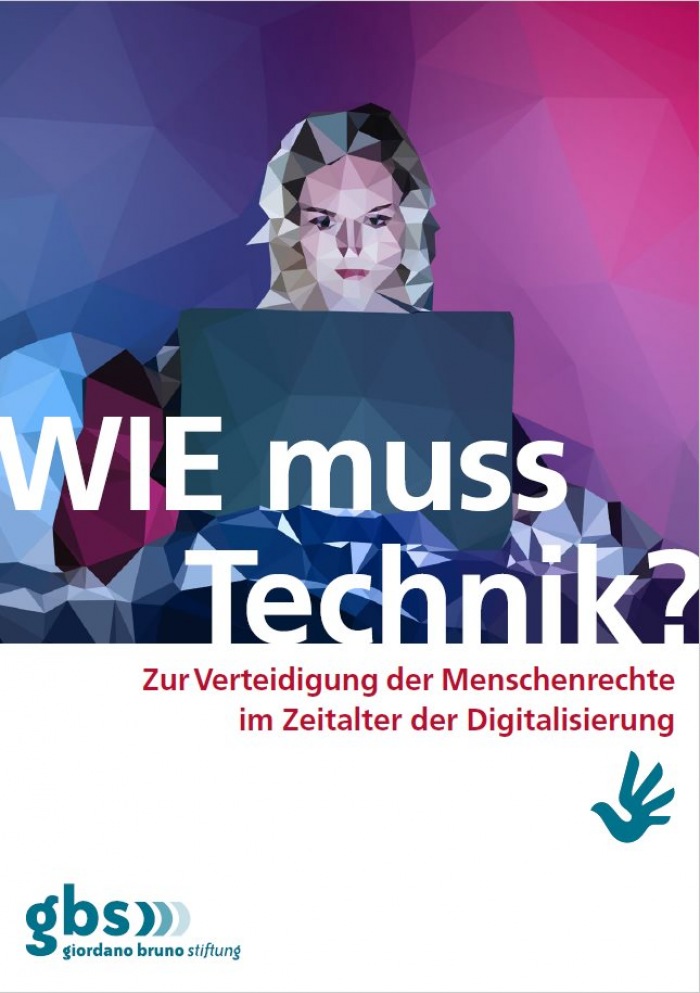How should IT work?
gbs publishes position paper on the consequences of digitization
Technological progress provides people with ever more effective tools - but according to which ethical criteria should they be used? The latest brochure produced by the Giordano Bruno Stiftung titled "How should IT work?" examines this question and how universal human rights can be defended in the age of digitization.
"The focus of human rights is on individuals – not nations, religious communities, ethnic groups or multinational corporations. It is important to defend this central standard of humanistic ethics – especially in regards to the social changes triggered by the digital revolution," it says in the 16-page brochure "How should IT work?", which can now be ordered free of charge from the gbs office or downloaded via the Giordano Bruno Stiftung website.
The gbs brochure provides a succinct overview of the ethical challenges associated with digitization. It is divided into six sections which deal with the following topics and more:
(A) Advance in labor and social participation
In the near future up to 60 percent of individual jobs could be partially or completely outsourced to computers, which would not only require new economic security measures, but also reinforcement of civil engagement and participation opportunities for citizens. Otherwise the danger of a two-tier society increases, in which an elite has the say, while the overwhelming majority is sedated by cheap products and virtual triviaty.
(B) Better education, media literacy and freedom of expression
Artificial filter bubbles cannot be eliminated by censorship, but by providing media literacy and education. In this context, the brochure criticizes the "Netzwerkdurchsetzungsgesetz" ("Network Enforcement Act", a German law aimed at combating fake news in social networks, but enables restricting the freedom of expression) and traditional educational programmes which convey dead factual knowledge, but not the crucial ability to evaluate the quality of information on the basis of rationality and evidence.
(C) Capabilities of information technology
A critical view of technological developments does not imply being hostile towards technology. As a matter of fact, Big Data is not necessarily "evil" and data austerity is not necessarily a virtue. Everyone could benefit from wisely regulated data wealth - however, personal data must be transferred strictly anonymously. Potential damage resulting from the misuse of sensitive information is too high.
(D) Digital self-determination and internal security
Terror and organized crime unsettle society and regularly raise calls for more surveillance. However, total mass surveillance without cause is counterproductive: It allows the observed to hide as "needles in a digital haystack" and creates an uncontrollable power that can be abused at any time.
(E) Ethical conflicts
There are ethically highly problematic developments in the field of digitization, such as algorithmic echo chambers, targeted disinformation and censorship, overpowering social credit systems, concentration of power within corporations or authorities, increasingly insidious instruments of automated warfare, and much more. It is important to address these problems before it is too late. The demands of ethics must be the basis of our actions, not just a decoration.
(F) Formulation and enforcement of digital human rights
In addition to the UN human rights conventions, the UN General Assembly should explicitly endorse digital human rights. This includes the right to informational self-determination, protection against uninitiated mass surveillance and protection against unverifiable automated evaluations. Thus, algorithms must not discriminate against people for exercising their fundamental freedoms.

